-
 Bitcoin
Bitcoin $79,711.4041
-3.14% -
 Ethereum
Ethereum $1,538.5066
-5.60% -
 Tether USDt
Tether USDt $0.9992
-0.05% -
 XRP
XRP $1.9841
-1.63% -
 BNB
BNB $578.1462
0.23% -
 USDC
USDC $1.0000
0.01% -
 Solana
Solana $113.3900
-2.89% -
 Dogecoin
Dogecoin $0.1553
-1.34% -
 TRON
TRON $0.2355
-1.37% -
 Cardano
Cardano $0.6168
-0.36% -
 UNUS SED LEO
UNUS SED LEO $9.4115
0.23% -
 Chainlink
Chainlink $12.2586
-1.13% -
 Avalanche
Avalanche $18.4989
1.74% -
 Toncoin
Toncoin $2.9411
-5.24% -
 Stellar
Stellar $0.2323
-1.94% -
 Hedera
Hedera $0.1694
0.41% -
 Shiba Inu
Shiba Inu $0.0...01175
-0.30% -
 Sui
Sui $2.1221
-2.88% -
 MANTRA
MANTRA $6.4450
-4.88% -
 Bitcoin Cash
Bitcoin Cash $293.7100
-2.93% -
 Litecoin
Litecoin $74.7327
-0.77% -
 Polkadot
Polkadot $3.4981
-2.33% -
 Dai
Dai $0.9997
-0.03% -
 Bitget Token
Bitget Token $4.1986
-2.67% -
 Ethena USDe
Ethena USDe $0.9985
-0.04% -
 Hyperliquid
Hyperliquid $14.1454
4.74% -
 Pi
Pi $0.5960
0.47% -
 Monero
Monero $200.4963
-0.82% -
 OKB
OKB $54.0669
1.28% -
 Uniswap
Uniswap $5.0725
-4.19%
how nft marketplace works
Using cryptocurrency wallets, buyers connect to NFT marketplaces to explore digital assets, initiate transactions, and securely transfer NFTs from seller to buyer, ensuring authenticity and proof of ownership through blockchain records.
Oct 27, 2024 at 06:43 am
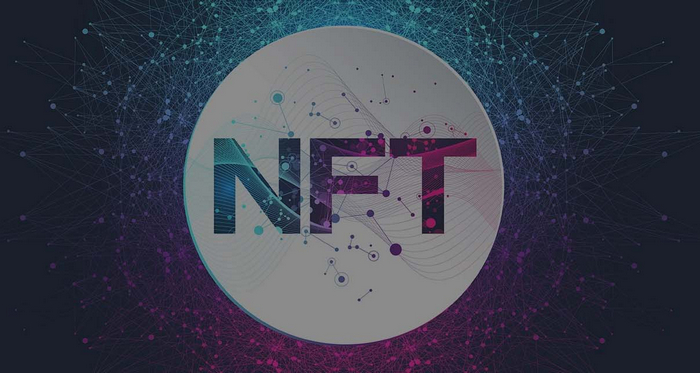
How NFT Marketplaces Work
What are NFTs and NFT Marketplaces?
- NFTs (non-fungible tokens) are unique digital assets that represent ownership of items such as artwork, music, or videos.
- NFT marketplaces are platforms where users can buy, sell, and trade NFTs.
How do NFT Marketplaces Work?
- Creating and Listing NFTs: Creators can upload their digital assets to an NFT marketplace and create an NFT representing ownership. They set a price and other sale conditions.
- Buying NFTs: Buyers browse the marketplace, find NFTs they want to purchase, and initiate transactions using cryptocurrency.
- Transaction Processing: The marketplace facilitates the transaction, transferring the NFT from the seller's wallet to the buyer's wallet. The transaction is recorded on the blockchain, ensuring authenticity and ownership proof.
- Fees Associated: Marketplaces typically charge fees for listing, minting (creating), and selling NFTs. These fees vary depending on the platform.
How to Use NFT Marketplaces
- Set up a Cryptocurrency Wallet: You need a cryptocurrency wallet (e.g., MetaMask, Coinbase Wallet) to hold and interact with NFTs.
- Choose an NFT Marketplace: Research different marketplaces based on their offerings, fees, and community reputation.
- Connect Your Wallet: Link your cryptocurrency wallet to the marketplace to facilitate transactions.
- Explore and Browse NFTs: Discover NFTs listed for sale, filter by category, and read item descriptions.
- Initiate Transactions: Once you find an NFT you want, click on it to view its details and purchase options. Follow the instructions to complete the transaction.
Benefits of NFT Marketplaces
- Decentralization: Marketplaces reduce reliance on intermediaries and empower creators to control their work.
- Provenance and Authenticity: NFTs provide verifiable proof of ownership and prevent unauthorized duplication.
- New Revenue Streams: Creators can monetize their digital creations through NFT sales and royalties.
- Community Building: Marketplaces foster a sense of community among artists, collectors, and enthusiasts.
Disclaimer:info@kdj.com
The information provided is not trading advice. kdj.com does not assume any responsibility for any investments made based on the information provided in this article. Cryptocurrencies are highly volatile and it is highly recommended that you invest with caution after thorough research!
If you believe that the content used on this website infringes your copyright, please contact us immediately (info@kdj.com) and we will delete it promptly.
- 4 Cryptos Making Headlines: Bitcoin (BTC), Ripple (XRP), BlockDAG (BDAG), and Binance Coin (BNB)
- 2025-04-11 10:05:13
- Tron Price Aims for $0.30 and Kaspa Falls 17% While 500K+ Miners Trust BlockDAG’s X1 App
- 2025-04-11 10:05:13
- XRP Poised for a Major Rally as SEC Lawsuit Ends, ETF Approvals Loom, and Technical Indicators Signal a Bullish Breakout
- 2025-04-11 10:00:12
- The Pi Network price today shows continued weakness
- 2025-04-11 10:00:12
- BlockDAG (BDAG), Litecoin (LTC), Filecoin (FIL), and Tron (TRX) Are Some of the Best Crypto Projects for 2025
- 2025-04-11 09:55:12
- Bitcoin [BTC] Topped $88K After Trump's 'Less Severe' Tariff Plans
- 2025-04-11 09:55:12
Related knowledge
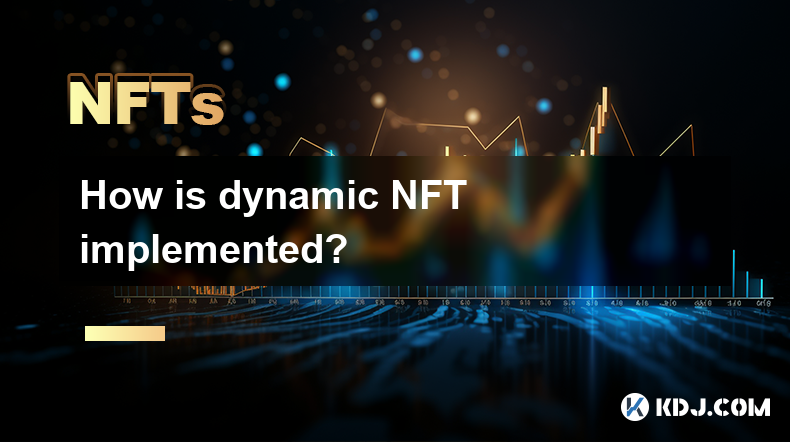
How is dynamic NFT implemented?
Apr 11,2025 at 04:56am
Dynamic NFTs, or dNFTs, represent a fascinating evolution in the world of non-fungible tokens. Unlike static NFTs, which remain unchanged once minted, dynamic NFTs can evolve, change, or update based on certain conditions or external data. This article will delve into the implementation of dynamic NFTs, exploring the technologies and processes involved ...
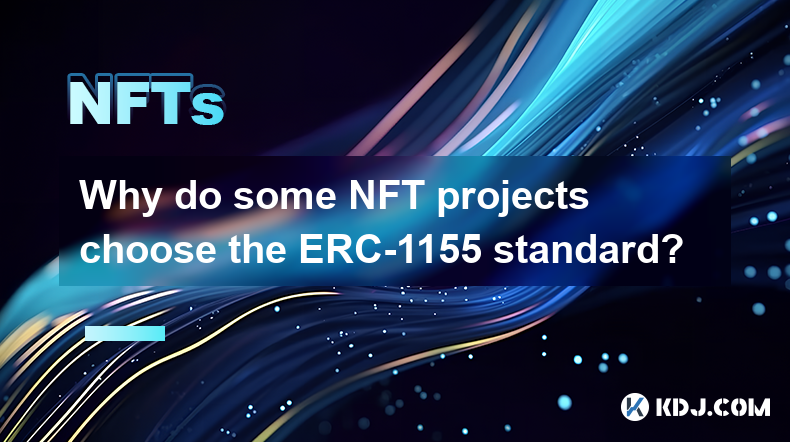
Why do some NFT projects choose the ERC-1155 standard?
Apr 08,2025 at 11:49am
The world of Non-Fungible Tokens (NFTs) has seen a significant rise in popularity and innovation, leading to the development of various token standards. Among these, the ERC-1155 standard has emerged as a versatile and efficient choice for many NFT projects. This article delves into the reasons why some NFT projects opt for the ERC-1155 standard, explor...
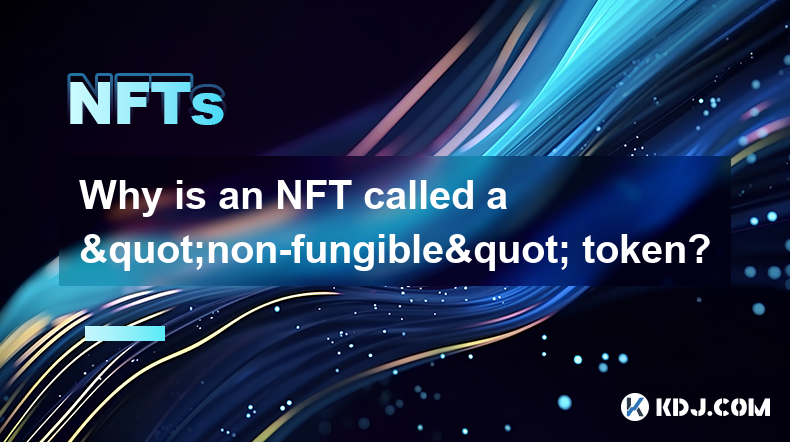
Why is an NFT called a "non-fungible" token?
Apr 11,2025 at 06:15am
An NFT, or Non-Fungible Token, is a unique digital asset that represents ownership or proof of authenticity of a specific item or piece of content, typically stored on a blockchain. The term 'non-fungible' is crucial to understanding the nature and value of these tokens. In this article, we will delve into the reasons why an NFT is called a 'non-fungibl...
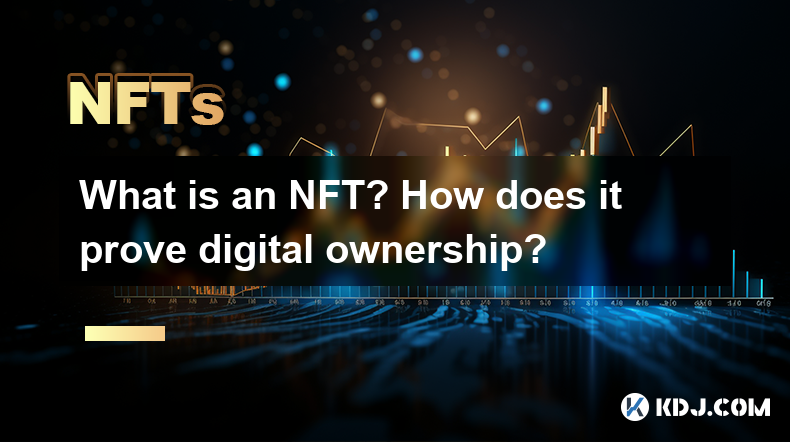
What is an NFT? How does it prove digital ownership?
Apr 09,2025 at 11:21pm
An NFT, or Non-Fungible Token, is a unique digital asset that represents ownership or proof of authenticity of a specific item or piece of content, typically stored on a blockchain. Unlike cryptocurrencies such as Bitcoin or Ethereum, which are fungible and can be exchanged on a one-to-one basis, NFTs are distinct and cannot be exchanged on a like-for-l...
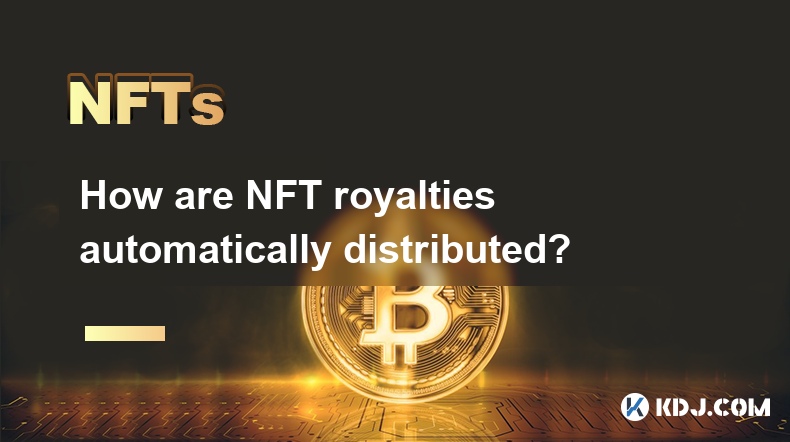
How are NFT royalties automatically distributed?
Apr 08,2025 at 08:14pm
NFTs, or Non-Fungible Tokens, have revolutionized the digital art and collectibles market by providing a way to prove ownership and authenticity of digital assets. One of the most intriguing features of NFTs is the ability to automatically distribute royalties to creators whenever their work is resold. This article will delve into the mechanisms behind ...
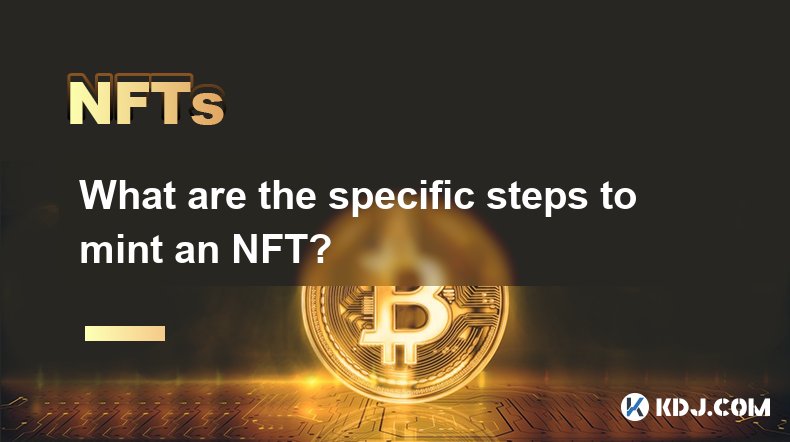
What are the specific steps to mint an NFT?
Apr 08,2025 at 05:22pm
Introduction to NFT MintingMinting an NFT, or Non-Fungible Token, involves creating a unique digital asset on a blockchain. This process allows artists, creators, and collectors to tokenize their work, ensuring its authenticity and ownership. Understanding the steps to mint an NFT is crucial for anyone looking to enter the world of digital collectibles....

How is dynamic NFT implemented?
Apr 11,2025 at 04:56am
Dynamic NFTs, or dNFTs, represent a fascinating evolution in the world of non-fungible tokens. Unlike static NFTs, which remain unchanged once minted, dynamic NFTs can evolve, change, or update based on certain conditions or external data. This article will delve into the implementation of dynamic NFTs, exploring the technologies and processes involved ...

Why do some NFT projects choose the ERC-1155 standard?
Apr 08,2025 at 11:49am
The world of Non-Fungible Tokens (NFTs) has seen a significant rise in popularity and innovation, leading to the development of various token standards. Among these, the ERC-1155 standard has emerged as a versatile and efficient choice for many NFT projects. This article delves into the reasons why some NFT projects opt for the ERC-1155 standard, explor...

Why is an NFT called a "non-fungible" token?
Apr 11,2025 at 06:15am
An NFT, or Non-Fungible Token, is a unique digital asset that represents ownership or proof of authenticity of a specific item or piece of content, typically stored on a blockchain. The term 'non-fungible' is crucial to understanding the nature and value of these tokens. In this article, we will delve into the reasons why an NFT is called a 'non-fungibl...

What is an NFT? How does it prove digital ownership?
Apr 09,2025 at 11:21pm
An NFT, or Non-Fungible Token, is a unique digital asset that represents ownership or proof of authenticity of a specific item or piece of content, typically stored on a blockchain. Unlike cryptocurrencies such as Bitcoin or Ethereum, which are fungible and can be exchanged on a one-to-one basis, NFTs are distinct and cannot be exchanged on a like-for-l...

How are NFT royalties automatically distributed?
Apr 08,2025 at 08:14pm
NFTs, or Non-Fungible Tokens, have revolutionized the digital art and collectibles market by providing a way to prove ownership and authenticity of digital assets. One of the most intriguing features of NFTs is the ability to automatically distribute royalties to creators whenever their work is resold. This article will delve into the mechanisms behind ...

What are the specific steps to mint an NFT?
Apr 08,2025 at 05:22pm
Introduction to NFT MintingMinting an NFT, or Non-Fungible Token, involves creating a unique digital asset on a blockchain. This process allows artists, creators, and collectors to tokenize their work, ensuring its authenticity and ownership. Understanding the steps to mint an NFT is crucial for anyone looking to enter the world of digital collectibles....
See all articles




















![🐢Super Mario World Koopa Troopa 100% 96⭐️ + Coin [Ao Vivo] 🐢Super Mario World Koopa Troopa 100% 96⭐️ + Coin [Ao Vivo]](/uploads/2025/04/10/cryptocurrencies-news/videos/super-mario-koopa-troopa-coin-ao-vivo/image-1.webp)


































































